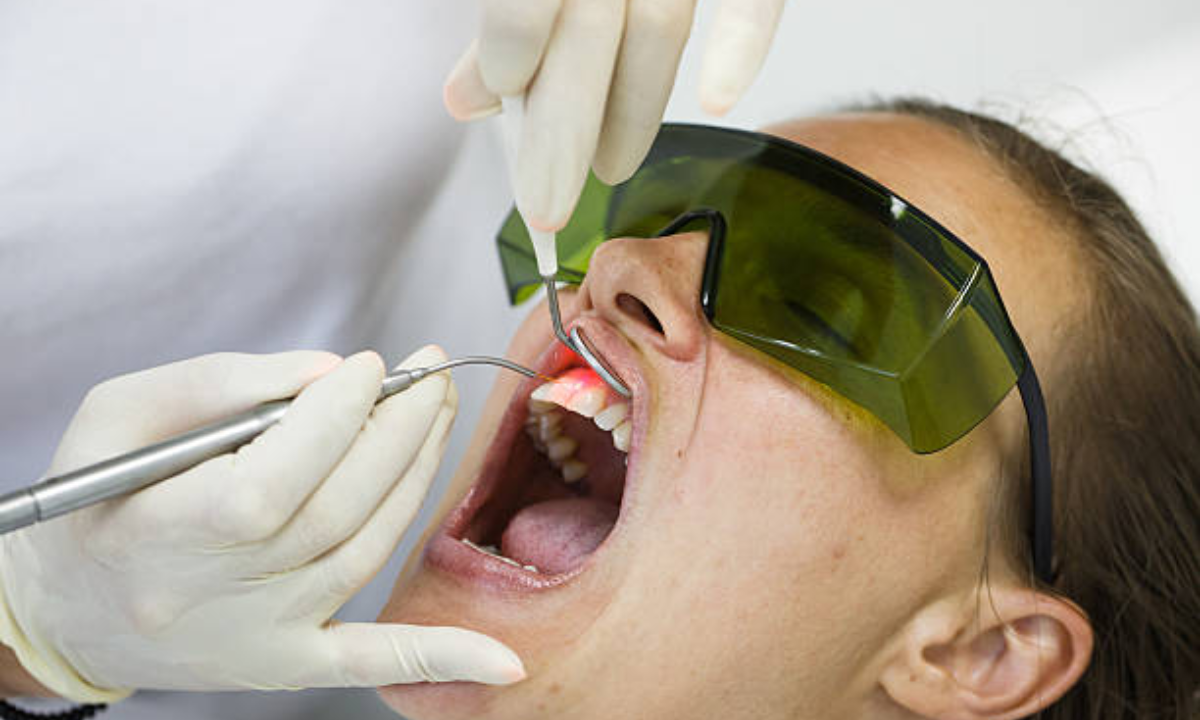Advancements in dental technology have revolutionized oral healthcare, and Laser Dentistry stands at the forefront of this transformation. With its minimally invasive approach and precision-based techniques, laser dentistry has become a preferred choice for both patients and dental professionals. Whether it’s treating cavities, reshaping gums, or performing biopsies, dental lasers are paving the way for more comfortable and effective dental procedures.
This blog explores everything you need to know about laser dentistry — including how laser dentistry works, its benefits, potential drawbacks, and cost-related aspects — and helps you make informed decisions about your oral care needs.
What is Laser Dentistry?
Laser Dentistry is a modern dental treatment method that uses focused light beams (lasers) to perform a variety of dental procedures. The term “LASER” stands for Light Amplification by Stimulated Emission of Radiation. The high-intensity light beam interacts with tissue to either cut or vaporize it, offering a more targeted and less painful alternative to traditional dental tools.
Laser dentistry is used in both hard tissue (teeth) and soft tissue (gums) treatments and is gaining popularity for its accuracy, speed, and reduced discomfort during procedures.
How Does Laser Dentistry Work?
Wondering how laser dentistry works? It utilizes different types of lasers depending on the procedure. In general, lasers emit energy in the form of light, which can be absorbed by teeth or gum tissue.
Hard Tissue Lasers are used to cut through tooth structure with great precision.
Soft Tissue Lasers are ideal for procedures involving the gums and other soft tissues in the mouth.
The laser essentially acts as a cutting tool or vaporizer, and in some cases, as a heat source for enhancing the effects of tooth-whitening agents.
During the treatment, the dentist adjusts the wavelength and pulse duration of the laser to match the type of tissue being treated. This minimizes damage to surrounding areas and improves healing time.
Common Procedures Performed Using Laser Dentistry
Laser dentistry can be applied in several dental treatments, including:
- Treating tooth decay
- Gum reshaping
- Crown lengthening
- Soft tissue biopsies
- Removal of oral lesions
- Treating sensitivity
- Teeth whitening
Benefits & Limitations of Laser Dentistry
Laser Dentistry Benefits
- Minimally Invasive: Laser treatments are less invasive than traditional methods, often eliminating the need for scalpels and sutures.
- Reduced Pain and Discomfort: The precision of lasers means less trauma to the tissues, leading to reduced pain during and after the procedure.
- Lower Risk of Infection: Lasers sterilize the treatment area, reducing the risk of bacterial infections.
- Faster Healing Time: Laser-treated tissues heal faster, allowing patients to return to their normal routine more quickly.
- Less Bleeding and Swelling: Soft tissue lasers promote clotting and minimize bleeding during surgery. Swelling is also significantly reduced.
- Enhanced Precision: Laser dentistry enables dentists to target specific areas without affecting adjacent tissues, ensuring accurate results.
Limitations of Laser Dentistry
- Cost: Laser equipment is expensive, and the cost may be passed on to patients.
- Not Suitable for All Procedures: Some dental tasks still require conventional tools.
- Learning Curve for Dentists: Dentists must undergo specialized training to operate laser equipment.
- Possible Tissue Damage: Improper use can result in injury to surrounding tissue.
Laser Dentistry Cost: What to Expect
The cost of laser dentistry can vary significantly depending on the type of procedure, location, and clinic reputation.
Here’s a general breakdown of cost factors:
- Teeth Whitening: Moderate cost
- Gum Contouring or Crown Lengthening: Higher cost due to complexity
- Lesion Removal or Biopsies: Varies depending on size and depth
- Cavity Treatment: Comparable or slightly higher than traditional fillings
While laser dentistry may appear costly upfront, its long-term benefits and reduced need for follow-ups often make it a cost-effective solution.
Is Laser Dentistry Right for You?
Laser dentistry is ideal for patients who:
- Want a pain-free and needle-free experience
- Prefer faster healing times
- Have anxiety about traditional dental tools
- Need precise treatment for soft or hard tissues
However, it’s essential to consult with your dentist to determine whether you’re a suitable candidate for laser-based procedures.
Choosing the Right Dental Clinic for Laser Dentistry
Selecting the right dental facility is critical. Consider visiting a trusted dental hospital in Koramangala and HSR Layout that offers laser dentistry services. Look for:
- Experienced dentists trained in laser technology
- Modern equipment and infrastructure
- Transparent cost estimates
- Positive patient reviews
Conclusion
Laser dentistry is shaping the future of oral healthcare by offering efficient, precise, and less painful treatments. From faster healing times to minimal discomfort, the laser dentistry benefits far outweigh traditional approaches for many patients. Whether you’re dealing with gum issues, cavities, or cosmetic enhancements, laser dentistry offers a revolutionary alternative.
If you’re in search of expert laser dental care, consider DDC Smiles — a leading dental clinic in Koramangala and HSR Layout that specializes in advanced diagnostics and laser-based treatments. Their trained dental team ensures you receive modern, minimally invasive treatments using the latest technology.




